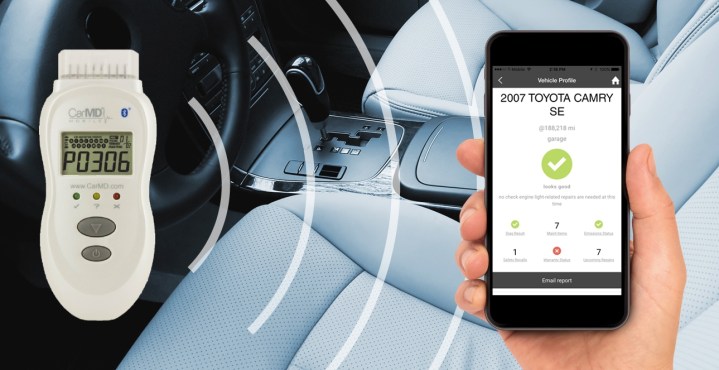
CarMD’s first mobile product looks to bundle all those functions in one. The company has years of experience producing its Vehicle Health System diagnostic tool as well as providing answers online, but this is its first offering that can scan, diagnose, and analyze mechanical issues on its own.
“For years, CarMD has been the go-to source to help consumers diagnose their car’s check engine light problems and make sure they don’t overpay for car repairs,” said Ieon Chen, CEO of CarMD. “Today’s busy consumers want everything readily available on their mobile devices, so it’s a natural next step for CarMD to introduce a mobile version of our product.”
CarMD Mobile works by combining an onboard diagnostic plug (for vehicles 1996 and newer) with a companion smartphone app. Essentially, the plug reads your check engine light and transfers the information to your phone via Bluetooth, where the CarMD app displays the mechanical fault and estimates repair costs. According to the brand, the technology is “user friendly even for those individuals who are not car savvy.”
CarMD Mobile’s feature don’t stop there though. Vehicle history, VIN scanning, emissions test readiness, and enhanced health reports are all available through the app, as is the company’s Predictive Diagnostics program. As the name would suggest, Predictive Diagnostics helps forecast what problems could pop up down the road, giving the owner valuable information to go toward repair budgets or vehicle sale information.
CarMD Mobile will go on sale in mid-November for a suggested retail price of $139.95.
Editors' Recommendations
- Watch this famous musician fly in a car with wings
- Your car insurance company knows more about you than you think
- 2024 Dodge Charger Daytona reinvents the muscle car for the EV era
- Dubai Police to deploy driverless patrol cars with AI smarts
- Apple wants to supercharge CarPlay, but here’s why carmakers won’t bite



